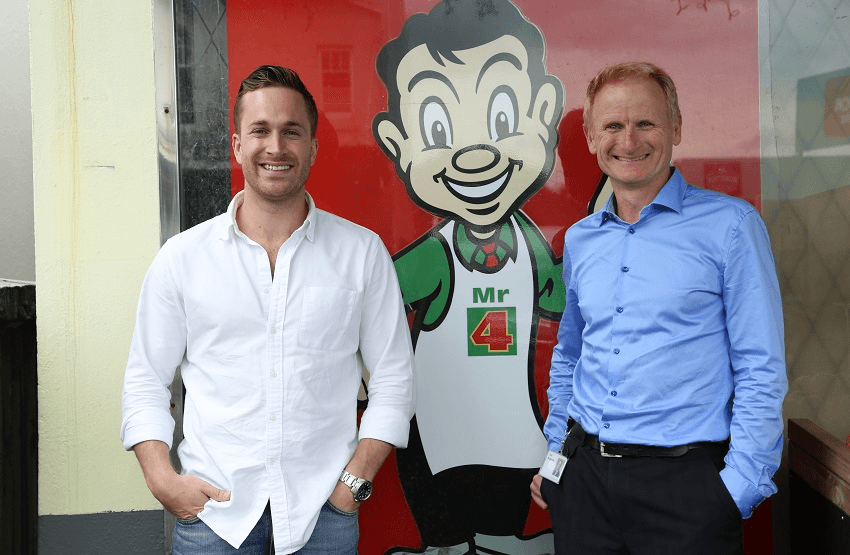A Kiwi startup is at the cutting edge of a technology that knows what you put in your shopping basket, eliminating the need for checkouts and queues.
Aucklanders are about to get their first taste of a shopping revolution that is gathering pace around the globe.
If you thought the demise of single-use plastic bags was a big moment in retail history, hold onto your reusable carry-alls. Cashierless shopping will spell the end of human checkout staff, frustrating queues, and self-service terminals that appear to require a postgraduate qualification to operate (why will they never detect the item unless you put it into one of the single-use plastic bags we’re supposed to not be using?)
The technology is springing up in various guises, but all are based on cameras and image-recognition artificial intelligence (AI) that automatically ring up the customer’s bill as they pluck items from the shelves.
While the American media gets excited about the new chain of cashierless Amazon Go stores, a homegrown New Zealand company is about to debut a technology it believes can win the grab-and-go shopping race.
AI and computer vision startup Imagr is weeks away from the trial of Smartcart, a system that allows shoppers to check out items by simply putting them in a basket.
Smartcart’s birth will be humble. Not for it the urban cool of Seattle, Amazon’s hometown and the setting for the first clutch of Amazon Go outlets. Just five Smartcart baskets will be on trial at the Four Square store in Ellerslie, 8km from downtown Auckland. However Imagr is streets (or should that be aisles) ahead of its tech giant competitors, says company founder William Chomley.
The comforting small-town convenience store aroma of spices and bread and laundry powder greets you as you enter Imagr’s CBD offices. It has set up a replica of the suburban supermarket, and is on a mad dash to educate its AI engine how to recognise all 4000 items in Four Square’s range.
They’re almost ready to go at Ellerslie. “We just want to make sure we’re doing it properly,” Chomley says.
The Smartcart system works via cameras on the four corners of the shopping basket. The customer downloads an app to their phone and adds a payment method, a la Uber. In the store they pair their phone with a shopping cart and head off down the aisles. As they add products to the cart they appear on the phone’s virtual basket.
In comparison Amazon Go’s system utilises hundreds of cameras on the ceiling of the store which track shoppers’ movements.
A similar, rival technology has been launched by Standard Cognition in a San Francisco mini mart.
The big difference with Smartcart is that it’s highly scalable, Chomley says. As opposed to the $10 million-plus it costs to outfit an Amazon Go store roof, its baskets cost just $100 each.
“The scalability is infinite,” he says. “It’s just a matter of sending a basket (to the store).
“This is like a Trojan horse – the smarts are in the image classification. We have pure AI: it recognises the object for what it is regardless of the outside.”
Smartcart’s engine learns what each product is, right down to the font on the packaging. The barcode is scanned and then a picture is taken of the product from every angle. Spices are a classic example – at first blush the boxes all look pretty much the same.
Other systems still can’t do what Smartcart can, Chomley says. Focal Systems is a tablet mounted on the shopping trolley which tells the customer where items are in the store and alerts staff when stock is running low, while Caper Lab relies on barcodes and has yet to finish developing a scanless solution.
Imagr is in discussions with numerous international retailers, and Chomley has ambitious plans. He has a press release on the office wall dated November 2019, with the headline ‘Imagr Secures Global Rollout’.
“It’s a big goal, but we can get there,” he says.
Retail trends are all heading in the right direction for the technology, Chomley believes. Despite predictions that online would be the death of bricks and mortar retail, 80% of purchases are made in-store, he says. “The incumbents still have the upper hand, they just need to start delivering a better customer experience.”
In addition, people like to touch products and choose their own goods, especially fruit and vegetables.
What’s more, he says, basket sizes are decreasing while frequency of shopping is increasing.
Certainly Four Square’s operator, Foodstuffs, plans to take the technology mainstream. North Island chief information officer Peter Muggleston has said bricks and mortar retailers must embrace AI technologies to enhance consumer experiences and ensure they lead the field in what they offer.
Smartcart will also help with inventory management, cost reduction and analytics and Imagr is working on effective ways to deliver tailored promotions to customers as they shop, he says.
Retail NZ’s general manager of public affairs, Greg Harford, says these technologies have a real future in stores because they will be hyper-convenient for customers and allow retail employees to focus more on delivering added-value services to the customer experience.
So far the industry body is not aware of any other New Zealand retailers introducing grab-and-go technologies, however.
“We expect that Kiwi retailers will look at the technologies as they are rolled out in larger markets before considering whether to introduce them here,” he says.
“We would expect that ‘grab and go’ technologies would be mostly operated in tandem with traditional service offerings in the short-term.”
An earlier version of the story said Smartcart would be operational by Christmas. The official start date has yet to be finalised, Imagr says.
